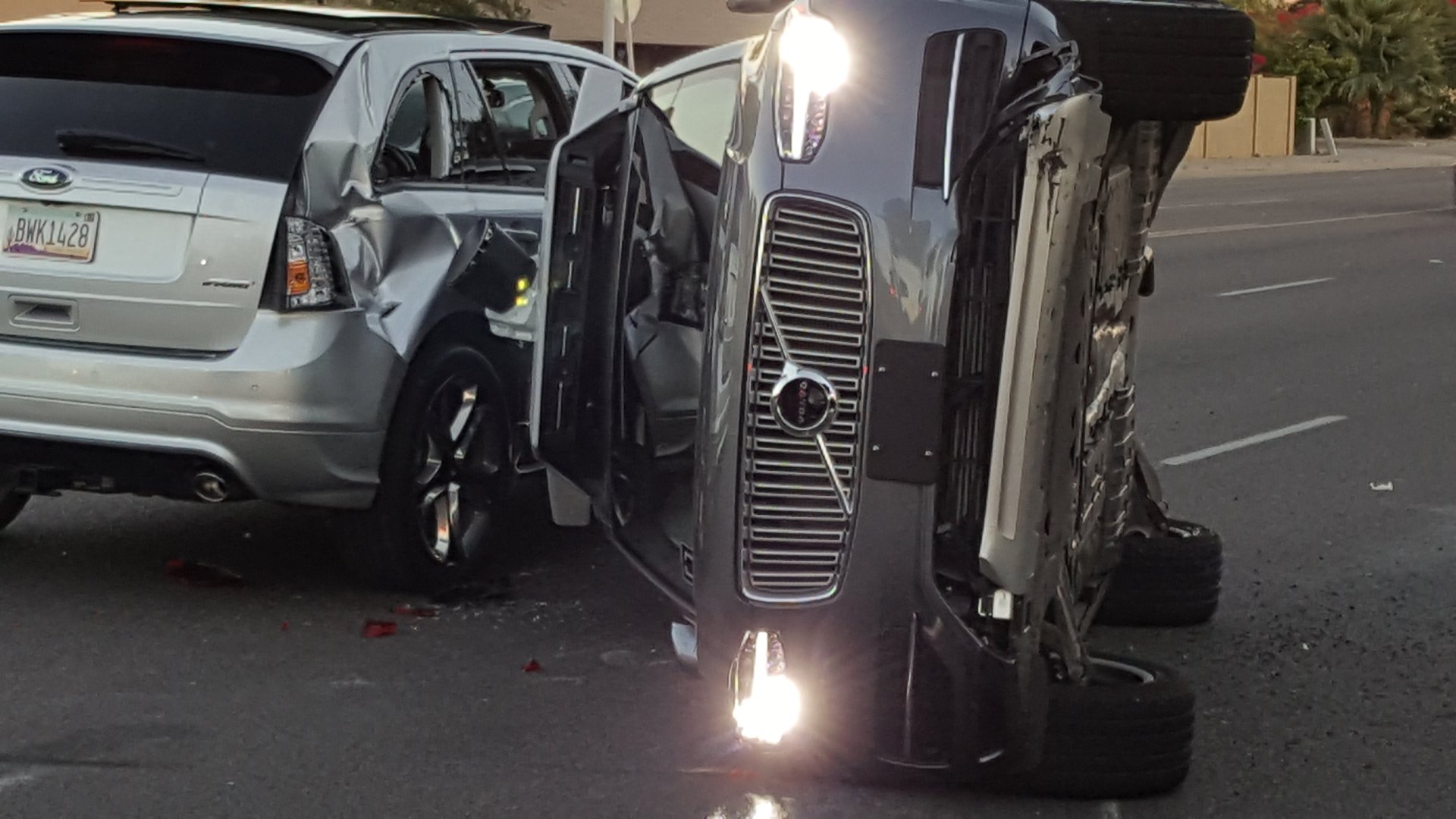Pittsburgh isn’t worried about the self-driving Uber that flipped over in Arizona
Uber’s self-driving cars are already back on public roads in three states after one crashed in Tempe, Arizona, over the weekend.


Uber’s self-driving cars are already back on public roads in three states after one crashed in Tempe, Arizona, over the weekend.
The ride-hailing startup resumed tests of autonomous vehicles in San Francisco this morning, and expected to have them back on the road in Pittsburgh, Pennsylvania, and Tempe later today, the company said by email. Uber briefly suspended its driverless program over the weekend after a three-vehicle collision in Tempe on March 24 caused a self-driving Uber Volvo SUV to roll onto its side, and left another car badly dented.
The accident occurred when a car failed to yield to Uber’s vehicle, which had two “safety” drivers up front and was in autonomous mode at the time. The back seat was empty. Tempe police found that the Uber car was not responsible for the incident.
The California Department of Motor Vehicles has contacted Uber and is working with law enforcement to “find out more about the crash,” the DMV told Quartz. In Pittsburgh, home to Uber’s research center on self-driving technologies, city officials contacted the company on Saturday (March 25) to learn more about the incident.
Pittsburgh mayor Bill Peduto and his chief of staff spoke to Uber this afternoon, his office said in an email. The company offered to share details of the accident in Tempe with Pittsburgh once the local investigation is complete, city spokesman Tim McNulty said. The city and Uber also agreed to keep “lines of communication open” in the event of future accidents. Last year, a self-driving Uber was filmed going the wrong way on a one-way street in Pittsburgh.
“Pittsburgh has been a host to automated vehicle technology for two decades, and will be continue to be a leader in the technology for years to come,” McNulty said in an emailed statement. ”One traffic incident in a city 2,000 miles away—in which the automated vehicle was not at fault, according to Tempe police—is not going to change that.”
The cities where Uber tests its driverless vehicles aren’t the only ones paying attention to what happened in Tempe over the weekend. “We looked at the headlines,” said Kristopher Carter, co-chair of the Boston mayor’s office of new urban mechanics. Boston in January began testing driverless cars from nuTonomy, a startup spun out of MIT.
Carter said the city is watching to see what other details emerge about Uber’s incident in Tempe, but remains confident in its program with nuTonomy. “Different companies, different technologies,” he said. “It’s sort of like how when Samsung had a battery issue, we didn’t all put our iPhones in the trash.”
While Uber’s Volvo wasn’t to blame in Tempe, the crash—and pictures of it—aren’t doing the program any favors. According to documents obtained by Recode, human safety drivers needed to take control of Uber’s autonomous vehicles roughly once every 0.8 miles last month. Recode also reported that at least 20 engineers have quit the program since last November.
Uber launched driverless tests on public roads in 2016 with four self-driving Ford Fusions in Pittsburgh; it initially planned to expand that fleet by 100 Volvo SUVs at the end of last year. Uber is also testing self-driving cars in Tempe and in San Francisco, where it recently obtained the necessary permits after a brief, unauthorized debacle in December.
Uber said it has “dozens” of driverless cars in both Tempe and Pittsburgh and reviews accidents internally. In California, state regulations mandate that companies testing driverless cars submit incident reports within 10 business days of one occurring.